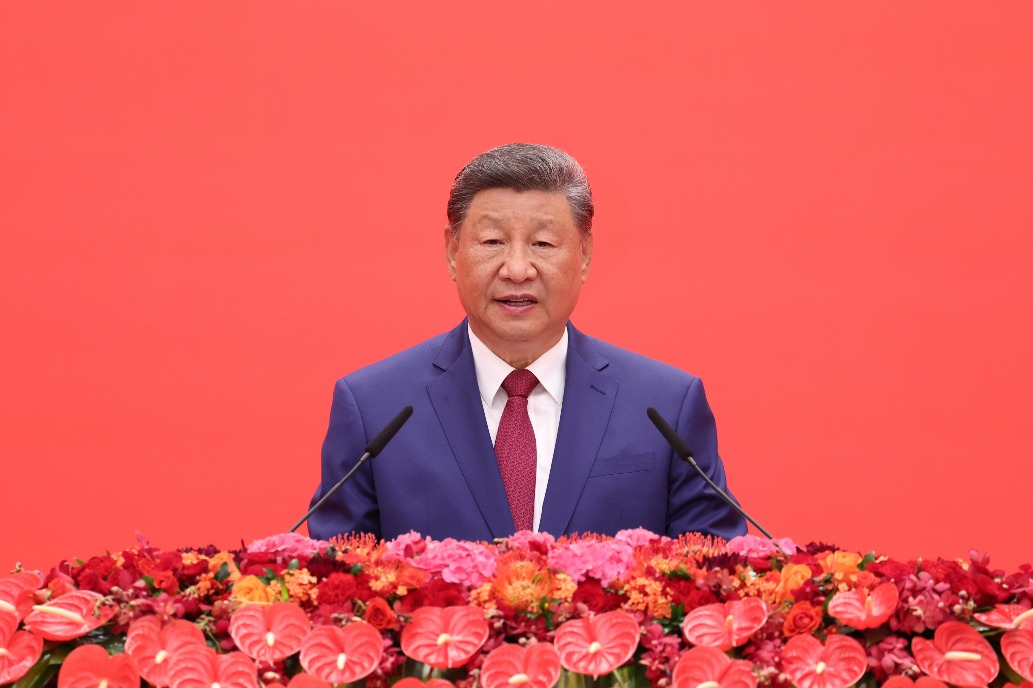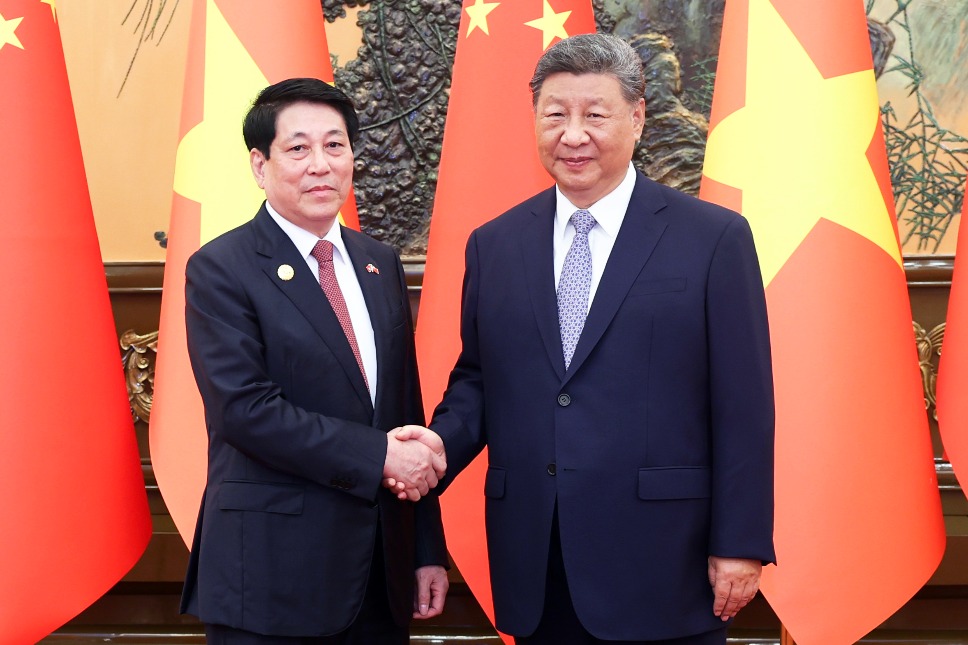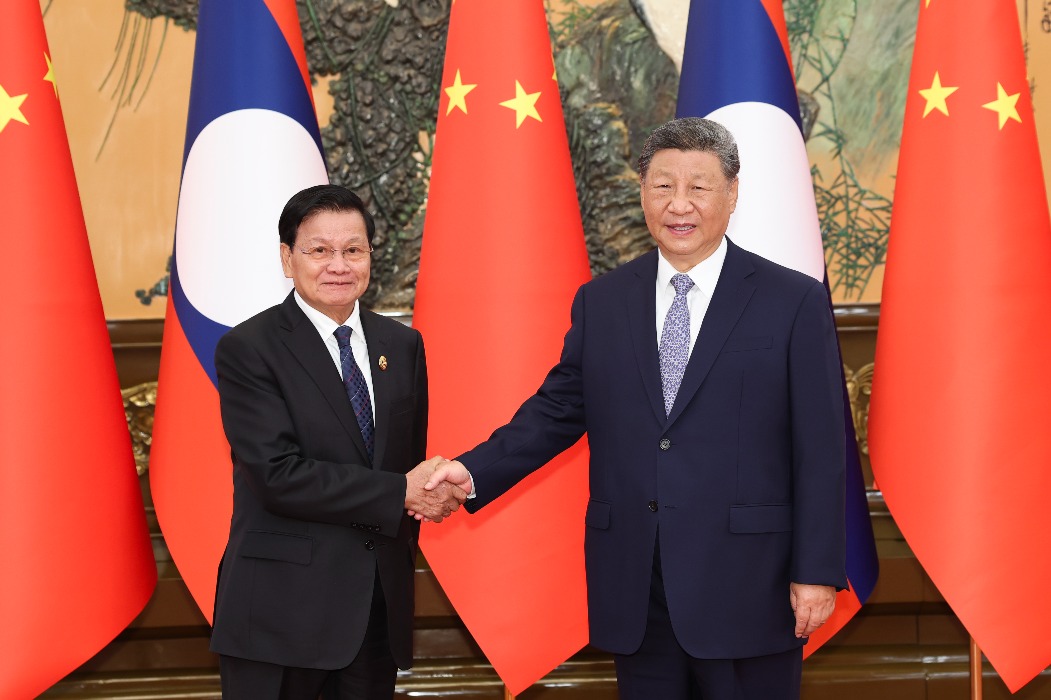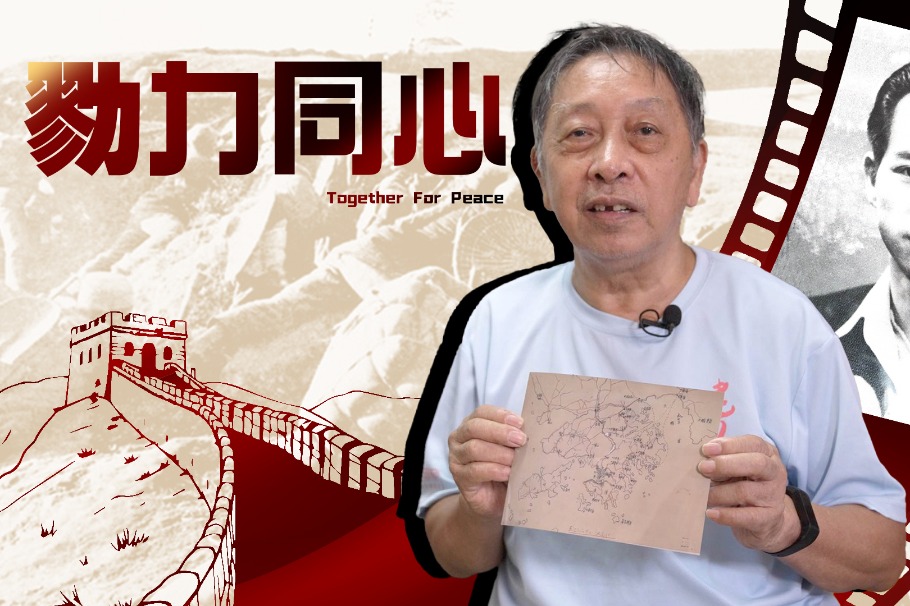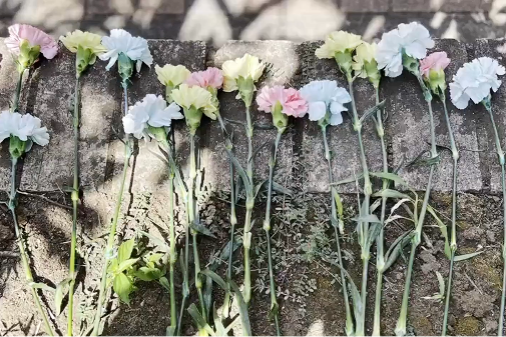AUTUMN TIGER ON THE PROWL
Ancient Chinese classics offer a ready reckoner for a smooth transition from the vitality and abundance of summer to the deep and reflective nature of the Fall, Chen Nan reports.

Flaming maple leaves and clear blue skies, steaming hot stew and pumpkin pies, a nip in the evening air, but not much daylight to spare-the rite of passage from summer to autumn is as spectacular as it is heartbreaking.
The very reason why embracing li qiu or "the start of autumn", which follows da shu or "major heat", in the right way is utterly important for the mind and the body.
The traditional Chinese calendar divides a year into 24 solar terms, and li qiu is the 13th. The word li literally translates into "commencement or beginning" while qiu means autumn. Hence, li qiu marks the withdrawal of summer and beginning of autumn. This year, the season changes on Aug 7.
Despite the start of autumn calendar-wise, the weather is not necessarily devoid of the stifling summer heat. In fact, as the first solar term of autumn, li qiu falls during the san fu period (dog days), which is the hottest and dampest phase of a year.
In Chinese, this phase is known as qiu lao hu or "the autumn tiger", suggesting an interim season of sweltering heat before the temperatures finally plummet.
In ancient times, li qiu was divided into three phases. The first welcomed the cool breeze. The north wind is expected to blow in several parts of China, gradually cooling the land mass from next week.
The second phase sees the formation of early morning dew. Hot days and cool evenings trigger dewdrops. Water vapor formed through evaporation during the day condenses when it touches cold surfaces, such as metals and outdoor plants, and turns into shiny droplets by morning.
Buzzing cicadas mark the third phase. Conducive temperatures and plenty of food prompt these insects to stridulate on trees, as if to herald the departure of summer.
Like the other solar terms, li qiu too was created to guide agricultural production. It announces the harvest season. According to popular beliefs, if it rains on the starting day of autumn, a good harvest can be expected. If it thunders, winter crops will fail. If it is sunny, the weather will be favorable for crops. And, if the north wind blows, it will probably rain afterward.
"In ancient China, the start of autumn was regarded as a very significant day. It also saw festivities across the country," says Zhang Bo, deputy secretary-general of the China Folklore Society.
Emperors, with court officials in tow, held welcome ceremonies to mark the day. Zhou Dynasty rulers led their men in white attire and accessories on white horses with white flags to suburban regions to the west of capital. The emperors hunted and offered animal sacrifice to the gods, praying for a good year.
There is a Chinese saying, yi ye zhi qiu, which means the falling of one leaf heralds the coming of autumn. It is said that during the Song Dynasty (960-1279), the imperial astronomer would move a potted Chinese parasol tree inside the court on the day of li qiu and report the exact time of autumn's beginning when the first leaf fell.
Like the other solar terms, li qiu guides the lives of the Chinese people even today through healthy diet and various rituals.
Wu Zimu, from the Song Dynasty, wrote in Menglianglu how women and children collected colorful autumn leaves, cut them into various shapes and patterns, and used them on hair and clothes as accessories. The culture is still popular in some regions, including Shandong and Henan provinces.
According to the ancient Chinese medical classic Huangdi Neijing (Inner Canon of the Yellow Emperor), li qiu marks the dynamic shift from yang or active phase to yin or passive phase.
"Just as the weather changes from bright to dull, so does the mood. It is, therefore, important to remain calm and composed, and refrain from depressing thoughts, so that one can make a smooth transition to winter," it says.
Since the autumn weather becomes dry with each passing day, Huangdi Neijing recommends food that nourishes and hydrates the body. It highlights the benefits of moisturizing sesame seeds, cooked seasonal vegetables and warm spices. Drinking anything cold is a strict no-no while one must avoid wearing damp clothes too.
Tie qiu biao, or gaining autumn weight, is a widely popular concept. On the first day of autumn, people weigh themselves and compare their weight to what it was at the start of summer.
If one has lost weight owing to poor appetite in summer, then protein-rich food is on top of the autumn list. Pork, beef, fish, chicken and duck delicacies are believed to offer extra nutrition to help one make it through the bone-numbing winter that'll follow.
Different regions of China have different fares for li qiu. Similar to the tradition of "biting spring", "biting autumn" refers to the custom of eating healthy seasonal fruits and vegetables.
Some binge on watermelon on this day because they believe it will flush out pathogens and toxins accumulated throughout summer, and prevent diarrhea in autumn. In Zhejiang province, people prefer drinking strong liquor, along with eating watermelons, to prevent malaria.
People in northern Chinese cities, such as Beijing and Tianjin, swear by pumpkin and eggplant dishes. Tofu, curd, soybean and green vegetables are widely eaten in Shandong to prevent digestive problems.
Hangzhou residents traditionally eat peaches and keep the stones until the Lunar New Year's Eve. The peach stones are then thrown into the stove, as it was once a custom to ward off plague.
The tradition of shai qiu, or drying crops in autumn, is very popular in ancient villages of Wuyuan county, East China's Jiangxi province. A colorful assortment of corns, red chilies and chrysanthemum flowers is dried in bamboo baskets. Shai qiu has become a symbol of local customs and is also a big tourism draw.
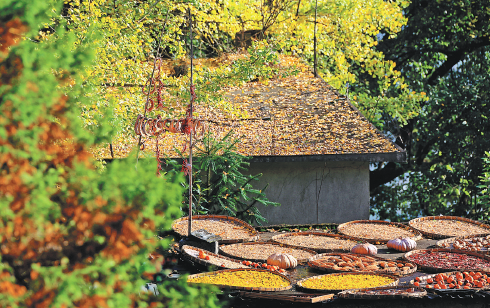
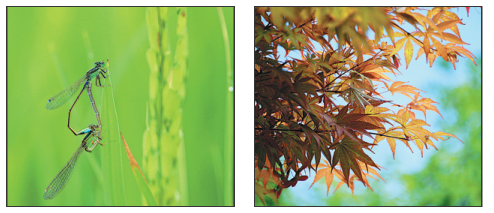
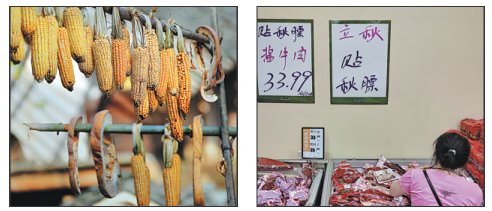
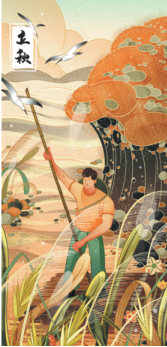
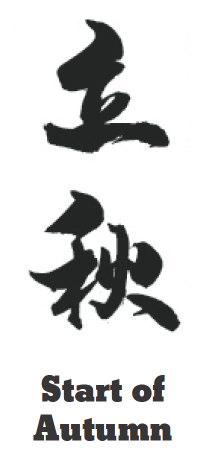
Today's Top News
- Lai's insinuations betray secessionists' anxiety their agenda is doomed to fail
- China, DPRK reaffirm friendship, vow closer ties as top leaders hold talks
- Xi meets Serbian president
- Xi meets Slovak prime minister
- Xi, Sassou Nguesso announce elevating bilateral ties
- Xi meets Zimbabwean president
















